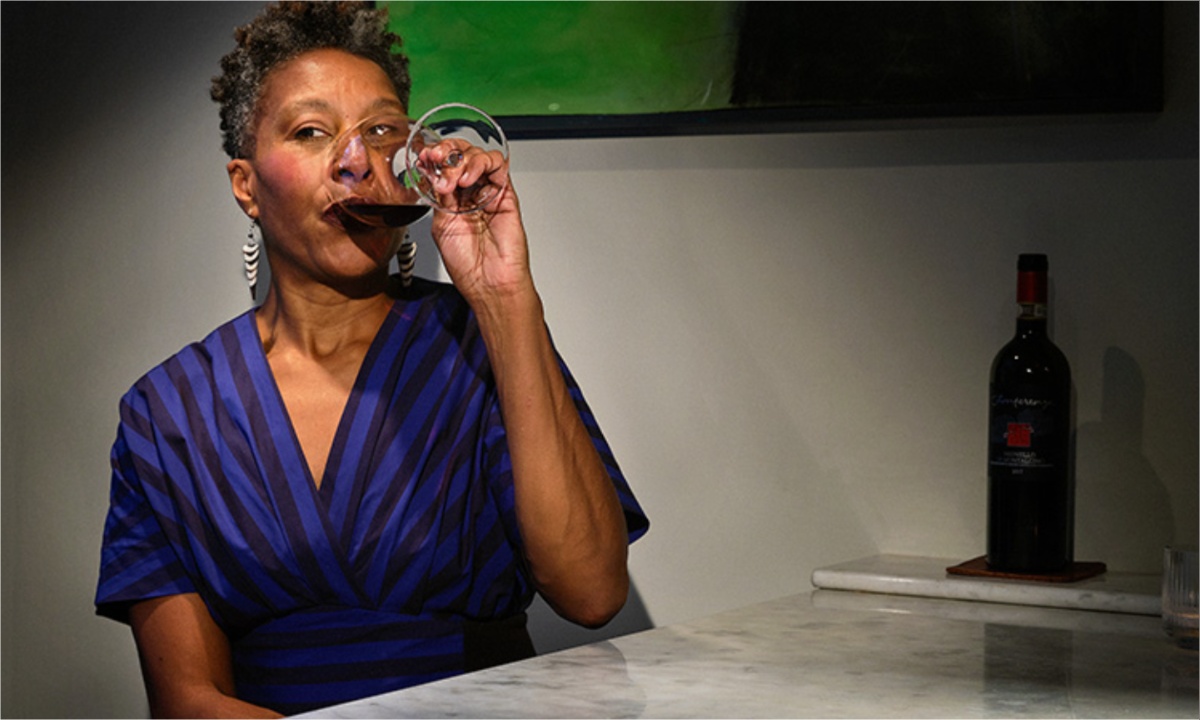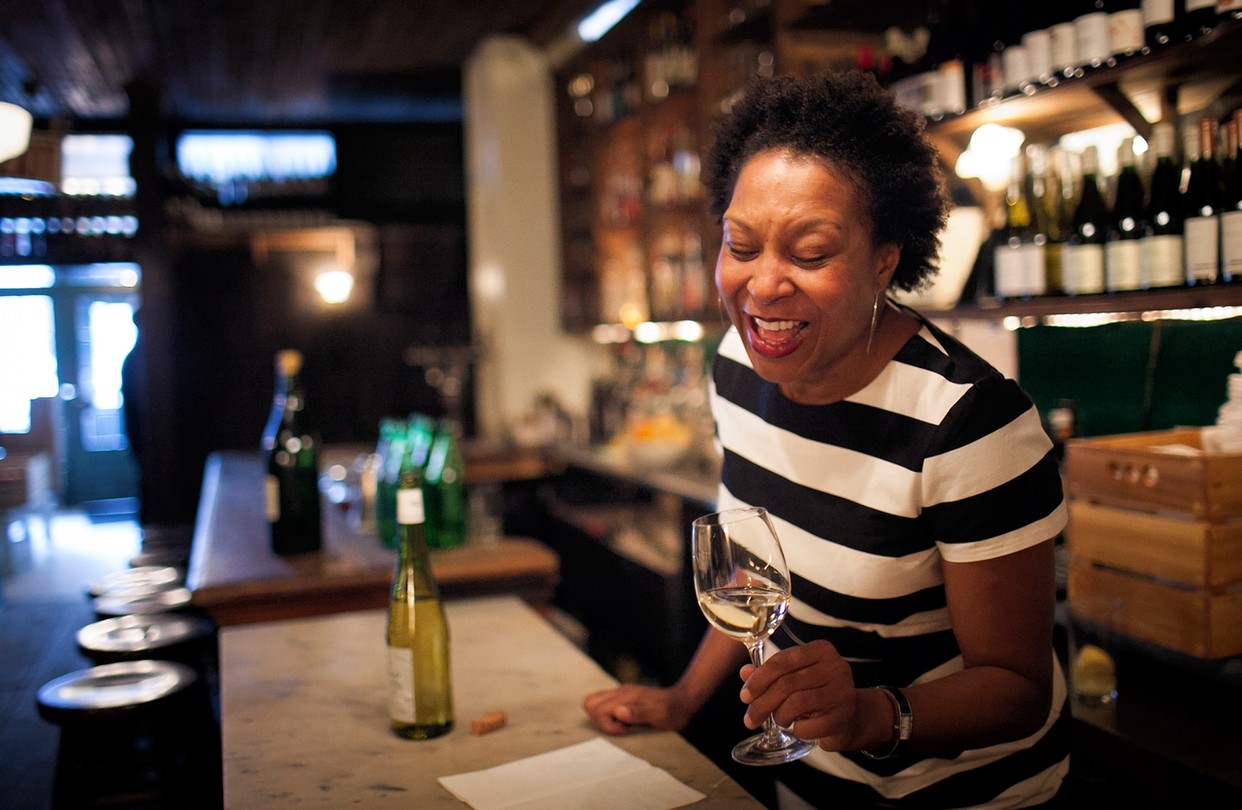Lee Campbell has been a major figure in New York’s natural wine world for over two decades. Known for her vibrant personality and dedication to natural wines, Campbell has worked with top shops, importers, and restaurants. Her most significant contributions include spearheading early natural wine programs at Andrew Tarlow’s restaurants and launching New York’s first natural-wine fair.
She also co-founded Common Wealth Crush, a winery in Virginia’s Shenandoah Valley. Currently, as the wine director at Borgo, Campbell is exploring a new phase of her career, focusing on craftsmanship and tradition while still championing natural wines.
When Campbell entered the wine industry in the late 1990s, the concept of natural wine did not exist as it does today. Back then, it was about discovering lesser-known regions and grapes like Grüner Veltliner or grower Champagne. Campbell found herself drawn to this side of the wine world, especially after meeting influential figures like David Lillie and Joe Dressner. This marked a shift away from the more conventional wine culture toward a grassroots movement focused on farmers and authenticity, where she felt most at home.
Campbell believes that natural wine has become more accepted over time, as the market has grown and diversified. Wines once considered too “wild” or unrefined for conventional wine drinkers are now more approachable. The younger generation of wine enthusiasts, particularly those drawn to Pét-nat and orange wine, continues to drive this change. Campbell hopes that this shift represents a genuine transformation in how we view wine—not just as a luxury item, but as a natural product with a deep connection to the land.

A Personal Connection to Andrew Tarlow’s Restaurants
Campbell’s professional journey intersected with Andrew Tarlow’s restaurants through a shared love for natural wine and mentorship from Joe Dressner. Tarlow, a well-known figure in New York’s dining scene, recognized Campbell’s passion for natural wines and entrusted her with curating the wine programs at his restaurants. This partnership solidified Campbell’s reputation as a leader in the natural wine movement, as she was given the freedom to introduce new and exciting wines to Tarlow’s establishments.
At Borgo, Campbell finds herself working in a different environment compared to her previous experiences in Brooklyn. While the wine audience in Manhattan is more varied and not always as attuned to natural wine, Campbell embraces the challenge of introducing these wines to a broader demographic. She emphasizes that the focus at Borgo is not on trendiness, but on the true expression of terroir through wines that are both restrained and classic in style.
The natural wine market has matured over the years, and Campbell observes that today’s natural wine buyers are more experienced and willing to explore a wider range of wines. As a result, she enjoys working with esteemed natural wine producers such as Paolo Bea and Fabio Gea. These producers represent the more foundational and iconoclastic voices in the natural wine world, offering wines with a deeper connection to the land and traditional winemaking methods.
Looking ahead, Campbell sees the future of natural wine as being closely linked to climate change. She believes that hybrid grapes and co-ferments—techniques that are often considered outside the traditional natural wine framework—will become increasingly important as the industry adapts to changing environmental conditions. Both her work at Common Wealth Crush and Jahde Marley’s ABV Ferments reflect this shift toward embracing hybrid grapes with the same care and attention given to classic varieties.

Curating a Diverse and Thoughtful Wine List
One of Campbell’s priorities in creating the wine list at Borgo was to ensure diversity and inclusivity. She made a conscious effort to include wines made by women, such as Arianna Occhipinti and Foradori, and also sought out wines from Black female producers in California. For Campbell, honoring these voices and stories is essential to creating a more vibrant and dynamic wine list. She aims to celebrate diversity while offering wines that are both pleasurable and community-oriented.
Campbell values the importance of honoring past influences while embracing innovation. She reflects on advice from Joe Dressner, who urged her not to forget the mentors who supported her early in her career. At Borgo, Campbell continues to honor these relationships by featuring long-standing wine producers she admires, such as Fonterenza and Foradori. While she is always open to new trends, Campbell emphasizes that her role in the natural wine world has often been to lead the charge, rather than follow it.
While Campbell’s wine list at Borgo includes many Italian wines to complement the restaurant’s Italian-inspired cuisine, it is far from exclusively Italian. Reflecting her diverse background, the list also features wines from Virginia, California, and New York. By blending her love for Italian wines with the unique terroir of the Northeast, Campbell has created a wine list that speaks to the modern New York dining experience. The list also includes wines from Burgundy, a long-time favorite of Campbell’s, highlighting natural producers who may not have received mainstream recognition.
Campbell takes a unique approach to orange wines, choosing to integrate them back into the white-wine category rather than treating them as a separate, trendy category. She recalls the time before the term “orange wine” existed and notes that the current obsession with skin-contact wines has led to a bit of misunderstanding. For Campbell, it’s important to appreciate orange wines not just for their color or style but for their traditional winemaking techniques that enhance the wine’s expression of terroir.
The Cost of Natural Wine in New York
Natural wine in New York, Campbell notes, has become increasingly expensive, which is a shift from when it was once perceived as a more affordable alternative to conventional wines. She emphasizes that in a competitive and expensive market like New York, wine prices need to reflect the costs of running a restaurant, including rent, staff, and quality service. Nevertheless, she strives to offer wines that are accessible and affordable, making sure there are options available for guests at all price points.
At the heart of Campbell’s approach to wine is her passion for engaging directly with guests in the restaurant. As a sommelier on the floor, she believes the most meaningful aspect of her work is connecting with customers and guiding them through their wine choices. The joy of serving guests and sharing her expertise in a lively, community-driven setting is what makes the restaurant experience truly special for Campbell.

